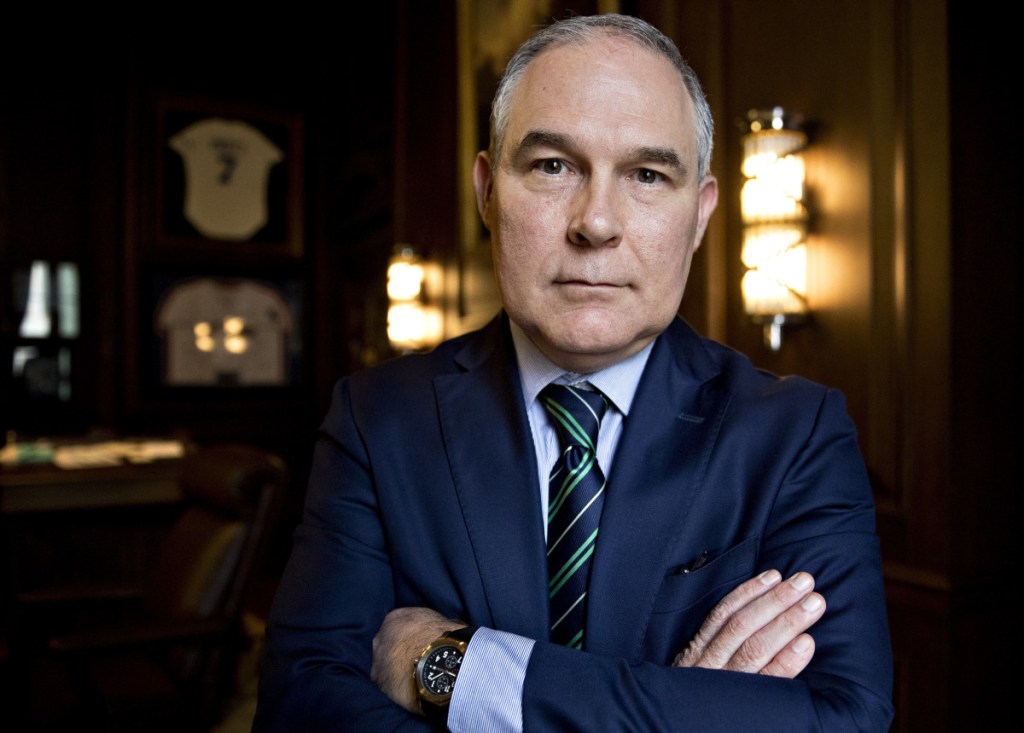The U.S. Environmental Protection Agency’s job is so straightforward, it is embedded in its name.
“Our mission is to protect human health and the environment,” the agency’s website confirms, just in case there was any doubt.
Yet in recent months, EPA Administrator Scott Pruitt has set the agency on a path that strays far from this fundamental ethos.
Through his actions, Pruitt has made it clear he is prioritizing the industries he is supposed to regulate above the environment he is entrusted to defend.
Since taking office last year, Pruitt has halted work on guidelines to limit oil and gas facilities’ emissions of methane and other pollutants. He has proposed repealing a plan adopted by President Barack Obama to move toward cleaner methods of generating electricity. He has taken aim at regulations designed to protect wetlands and streams.
And, all the while, he has boasted about these efforts, recently celebrating his rollback of 22 environmental rules, along with his work to start eroding more than 40 others.
Earlier this month, Pruitt announced plans to revoke requirements for cars and trucks to become more fuel efficient by 2025.
Dismantling this agreement is a boon for auto manufacturers, but not for the planet, which is straining under global temperature increases linked to greenhouse-gas emissions.
While Washington is one of about a dozen states that follow emissions standards set by California, not the federal government, Pruitt and the EPA have indicated they may also challenge the waiver that allows California and other states to adopt separate rules.
In Washington, relaxing vehicle standards could have an outsized effect on the state’s ability to meet its pollution reduction targets. The transportation sector accounts for about 43 percent of Washington’s greenhouse-gas emissions — a much larger share than the national average — largely because the state’s electric sector already leans heavily on clean hydropower.
The state has a vested interest in several other regulations Pruitt is targeting, too, including new safety rules for facilities that store hazardous chemicals. The updated rules, which Pruitt has delayed, were developed partly in response to the Tesoro refinery explosion in Anacortes that killed seven people in 2010.
Washington Attorney General Bob Ferguson has sued the EPA over the delay of those regulations and others. Ferguson similarly has joined other states in urging the agency to complete a scientific safety review of the pesticide chlorpyrifos, after Pruitt reversed course on the previous administration’s plans to ban the chemical.
In Washington state, health-department investigators linked the pesticide to 16 cases of illness between 2012 and 2014 alone.
Taxpayers are right to be outraged about recent reports of Pruitt spending millions of dollars on round-the-clock security, first-class flights and questionable office renovations.
But they should be equally upset about Pruitt’s attempts to unravel the environmental protections that form the core of his agency’s mission.
Editorial by The Seattle Times
Visit The Seattle Times at www.seattletimes.com
Distributed by Tribune Content Agency, LLC.
Send questions/comments to the editors.


